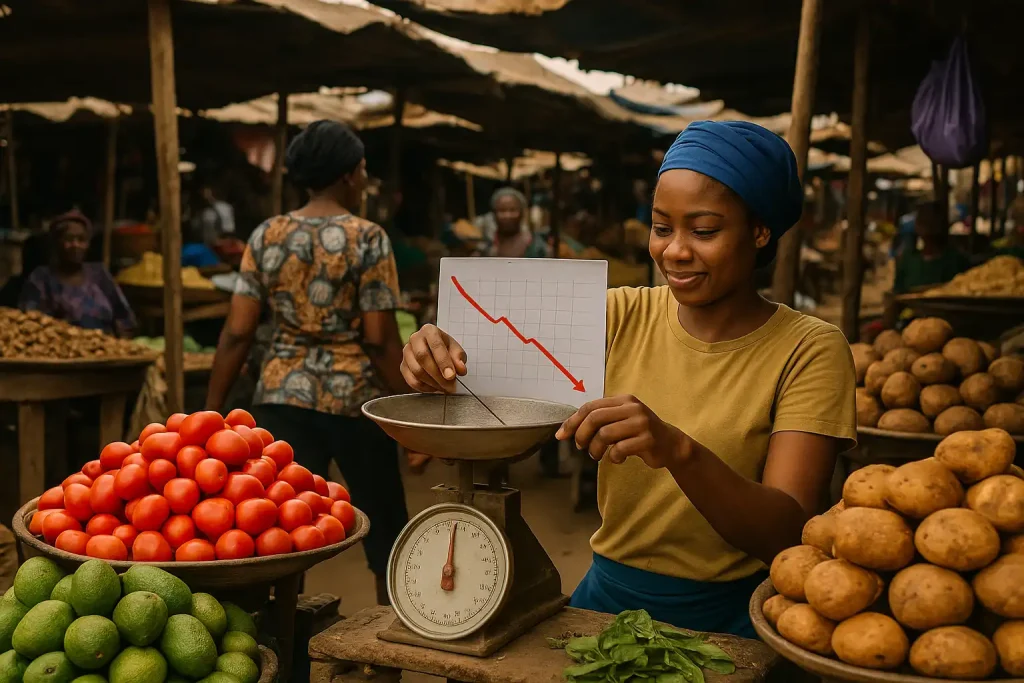On Wednesday, July 16, 2025, Nigeria’s national statistics office delivered a bit of good news: the country’s inflation rate dropped for the third month in a row in June.
The figure eased to 22.22% year-on-year, a slight dip from May’s 22.97%, according to the latest data released this evening.
This small step forward offers a ray of hope after inflation soared to unprecedented levels last year, fueling a relentless cost-of-living crisis that has tested the resilience of Nigerian families.
While the reduction is encouraging, the slowdown in this downward trend hints that economic challenges are far from over, leaving many to wonder if this relief will hold.
Everyday Struggles Persist
Despite the modest decline, the rising prices of food and everyday items continue to weigh heavily on people’s wallets.
Food inflation ticked up to 21.97% in June from the prior month, adding to the financial strain for households already stretched thin.
This pressure was particularly evident during last month’s Eid festivities, when the cost of essentials like ram meat spiked, making celebrations tougher for many.
In mid-June, protests broke out across major cities to mark 26 years of democracy, with crowds chanting about the soaring cost of living—a clear sign that economic hardship remains a top concern.
For countless Nigerians, affording basic necessities still feels like an uphill battle, and this slight dip in inflation hasn’t yet eased that burden.
Broader Economic Context
The inflation slowdown comes after a challenging period where prices outpaced incomes, eroding purchasing power across the nation.
Last year’s record highs forced many to rethink their budgets, with some turning to cheaper alternatives or cutting back on essentials.
The recent data suggests the government’s efforts to stabilize the economy might be starting to pay off, but the uptick in food costs shows that certain sectors are lagging.
Analysts note that global supply chain issues and local production challenges could be keeping prices elevated, especially for staples like rice and vegetables.
This mixed reaction means that while the headline number looks better, the real impact on daily life remains uneven.
Looking Ahead with Caution
As Nigeria navigates this economic landscape, the slight drop in inflation offers a glimmer of optimism, but it’s not a full solution.
Policymakers will need to address the root causes, such as food price volatility and currency fluctuations, to sustain this progress.
For now, the public’s reaction is cautious—some see it as a step in the right direction, while others fear it’s too little, too late.
The coming months will be critical to determine if this trend continues or if inflation rebounds.
With protests still fresh in memory, the government faces pressure to deliver tangible improvements, making economic stability a priority as the year progresses.























